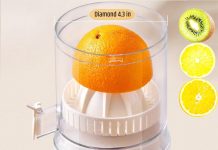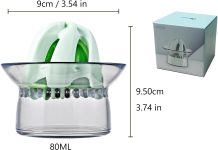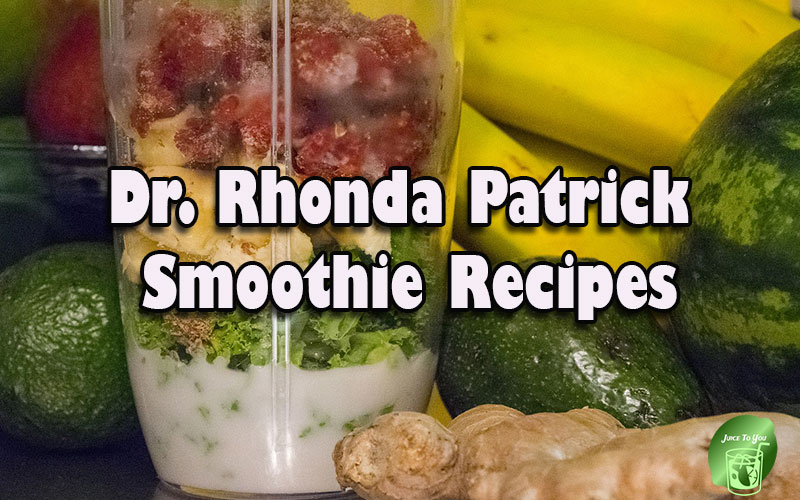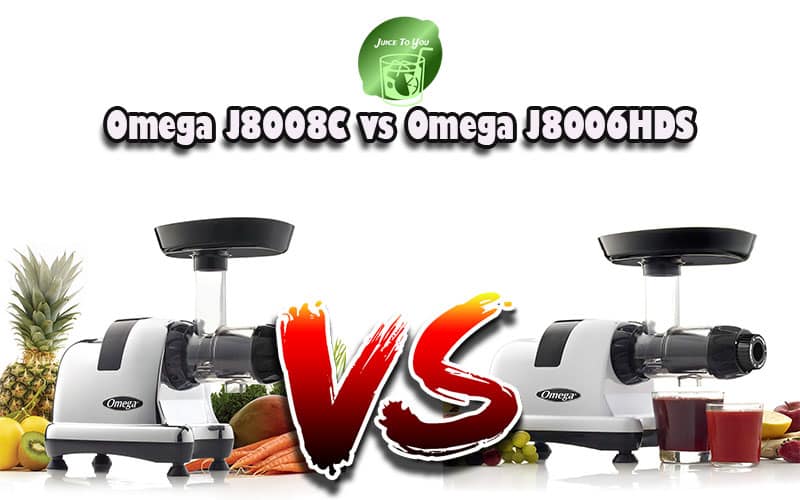Let’s settle this age-old debate: is drinking 100% fruit juice truly the same as eating fruit? Many of us have pondered this question, wondering if we can reap the same health benefits from a glass of juice as we would from consuming whole fruits. Today, we’re going to unravel the truth behind this quandary and shed some light on whether sipping on that delicious juice is equivalent to munching on a juicy apple or a handful of succulent berries.
Review contents
Nutritional Content
Vitamins and Minerals
Fruit juice and whole fruits both contain essential vitamins and minerals that are crucial for maintaining good health. However, there can be variations in the nutrient content between the two. While fruit juice is often fortified with additional nutrients, whole fruits provide a wider range of vitamins and minerals naturally. This is because whole fruits contain not only the juice but also the fiber-rich pulp and skin, which are rich sources of nutrients. Nevertheless, both fruit juice and whole fruits can contribute to meeting our daily vitamin and mineral needs.
Fiber
One of the key differences between fruit juice and whole fruits is the fiber content. Fiber plays a vital role in promoting digestion, regulating blood sugar levels, and supporting heart health. While fruit juice may retain some amount of dietary fiber, the majority of it is lost during the juicing process. On the other hand, whole fruits are an excellent source of dietary fiber, as the fiber-rich pulp and skin are preserved. Including whole fruits in our diet allows us to reap the full benefits of fiber, which is essential for maintaining a healthy digestive system.
Added Sugars
When it comes to fruit juice, it’s crucial to consider the presence of added sugars. Some fruit juices, especially those found on supermarket shelves, may contain added sugars to enhance taste and extend shelf life. The consumption of excessive added sugars can contribute to weight gain, tooth decay, and an increased risk of chronic diseases. Whole fruits, on the other hand, contain natural sugars that are accompanied by dietary fiber. The fiber helps slow down the absorption of sugars, preventing sharp spikes in blood sugar levels. Opting for 100% fruit juice without added sugars or enjoying whole fruits can both be part of a healthy diet.
Absorption and Digestion
Liquid vs. Solid
The difference in the physical form of fruit juice and whole fruits can affect their absorption and digestion. Fruit juice is in a liquid form, which means it is easier for our bodies to absorb quickly. The absence of fiber in most fruit juices contributes to this rapid absorption. On the contrary, whole fruits require more chewing and the breakdown of fiber during digestion, resulting in a slower and steadier release of nutrients into the bloodstream. This slower absorption can help us feel fuller for longer and prevent sudden spikes in blood sugar levels.
Glycemic Index
Another factor to consider is the glycemic index (GI). The GI measures how quickly carbohydrates in a food raise blood sugar levels. Fruit juices generally have a higher GI than whole fruits due to their concentrated sugar content and lack of fiber. This can lead to a rapid increase in blood sugar levels, which may be of concern for individuals with diabetes or those aiming to manage their blood sugar levels. Whole fruits, with their fiber and natural sugars, typically have a lower GI, promoting more stable blood sugar control.
Satiety
The presence of dietary fiber in whole fruits contributes to a greater feeling of satiety compared to fruit juice. The fiber adds bulk to the fruit, which can help us feel full and satisfied after consuming it. This feeling of satiety can play a role in portion control and preventing overeating. In contrast, fruit juice lacks the same fiber content, which may not provide the same level of satiety. This can potentially lead to consuming more calories by drinking fruit juice instead of eating whole fruits.
Health Benefits
Antioxidants
Both fruit juice and whole fruits are rich sources of antioxidants, compounds that help protect our cells from damage caused by harmful molecules called free radicals. Antioxidants have been linked to a reduced risk of chronic diseases, including heart disease, certain cancers, and age-related macular degeneration. While fruit juice can contain antioxidants from the fruits it is made from, whole fruits generally provide a more diverse array of these beneficial compounds. Including a variety of whole fruits in our diet can ensure a broader intake of antioxidants.
Heart Health
Fruit, whether in juice or whole form, can be beneficial for heart health. The presence of vitamins, minerals, and antioxidants in fruit can contribute to maintaining healthy blood pressure and reducing the risk of heart disease. Additionally, the fiber found in whole fruits, specifically soluble fiber, has been associated with improving cholesterol levels and reducing the risk of cardiovascular events. It is important to note that individuals with specific dietary restrictions or medical conditions should consult with their healthcare providers to determine the most appropriate fruit choices for their heart health.
Hydration
Staying properly hydrated is essential for overall health, and both fruit juice and whole fruits can contribute to our hydration needs. Fruit juice, with its high water content, can help replenish fluids in the body, especially during hot weather or physical activity. Whole fruits, on the other hand, not only contain water but also provide additional dietary fiber that helps retain water in the body. This combination of water and fiber in whole fruits can assist in maintaining adequate hydration levels.
Potential Drawbacks
Caloric Intake
One potential drawback of consuming fruit juice is the higher caloric content compared to whole fruits. Fruit juice often undergoes a concentration process, making it more calorie-dense than its whole fruit counterpart. This can be of concern for individuals aiming to manage their caloric intake or those trying to lose weight. While the natural sugars in fruit juice can be part of a balanced diet, portion control is crucial to avoid excess calorie consumption.
Tooth Decay
Due to the natural sugars present in both fruit juice and whole fruits, there is a risk of tooth decay if proper oral hygiene practices are not followed. The sugars can provide a food source for bacteria in the mouth, leading to the production of acid and the erosion of tooth enamel. To minimize the risk of tooth decay, it is important to practice good oral hygiene, such as regular brushing and flossing, and to consume both fruit juice and whole fruits in moderation.
Blood Sugar Control
Individuals with diabetes or those trying to manage their blood sugar levels need to be mindful of the impact of fruit juice and whole fruits on their glycemic control. Fruit juice, with its concentrated sugar content and lack of fiber, can cause rapid spikes in blood sugar levels. Whole fruits, on the other hand, with their fiber and natural sugars, generally have a more moderate effect on blood sugar levels. It is vital for individuals with diabetes to work with their healthcare providers to determine the appropriate portion sizes and frequency of fruit juice or whole fruit consumption.
Comparison Studies
Nutrient Absorption
Several studies have compared the nutrient absorption between fruit juice and whole fruits. While fruit juice can provide a quick boost of vitamins and minerals due to its liquid form, it has been found that whole fruits often lead to greater overall nutrient absorption. The presence of fiber in whole fruits has been shown to slow down digestion and enhance the absorption of certain nutrients. The variation in nutrient absorption emphasizes the importance of including both fruit juice and whole fruits in our diet to maximize nutrient intake.
Weight Management
The impact of fruit juice and whole fruits on weight management has also been a topic of interest. Studies have suggested that whole fruits, with their fiber content, can contribute to increased satiety, leading to better portion control and potentially aiding in weight management. On the other hand, excessive consumption of fruit juice, particularly those with added sugars, can contribute to excess calorie intake and potentially lead to weight gain. Incorporating whole fruits into meals and snacks, along with moderate consumption of fruit juice, can support a balanced approach to weight management.
Overall Health
When comparing the overall health impact of fruit juice and whole fruits, it is essential to consider the broader dietary context. Both fruit juice and whole fruits can be part of a healthy diet when consumed in moderation and in conjunction with a variety of other nutrient-dense foods. Relying solely on fruit juice or whole fruits for nutritional needs may result in an imbalanced diet. The inclusion of a wide range of foods, including fruits, vegetables, whole grains, lean proteins, and healthy fats, is necessary for achieving optimal health.
Dietary Guidelines
Fruit Recommendations
Dietary guidelines typically recommend consuming a variety of fruits daily. The World Health Organization (WHO) suggests consuming at least five servings of fruits and vegetables per day. While whole fruits are often emphasized, fruit juice can also count towards these recommendations. However, it is important to choose 100% fruit juice without added sugars and to consume it in moderation to avoid excessive calorie intake.
Juice Recommendations
When it comes to fruit juice recommendations, dietary guidelines often focus on the consumption of 100% fruit juice. The American Academy of Pediatrics (AAP) advises limiting fruit juice intake to 4 ounces (120 ml) for children aged 1-3 years, 4-6 ounces (120-180 ml) for children aged 4-6 years, and 8 ounces (240 ml) for children aged 7-18 years. It is worth noting that these recommendations are in place to prevent excessive calorie intake and promote the consumption of whole fruits as the primary source of fruit intake.
Limitations
While fruit juice can be included as part of a healthy diet, it is important to acknowledge its limitations. Fruit juice lacks the fiber content present in whole fruits, making it less filling and potentially leading to overconsumption. Additionally, the concentration process involved in producing fruit juice can lead to higher sugar and calorie content. Therefore, it is recommended to prioritize the consumption of whole fruits and use fruit juice as a complement in moderation.
Suitability for Different Age Groups
Children
For children, the consumption of whole fruits is generally encouraged over fruit juice. Whole fruits provide an opportunity for children to develop healthy eating habits, practice chewing, and experience the different textures of fruits. The AAP suggests that infants under six months of age should not consume fruit juice, as it is unnecessary for their nutritional needs. As children grow older, fruit juice can be introduced in limited quantities according to the AAP’s recommendations mentioned previously.
Adults
Adults can benefit from both fruit juice and whole fruits as part of a balanced diet. Including a variety of fruits in their diet can help meet their nutritional needs and provide the health benefits associated with fruit consumption. However, it is crucial for adults to be mindful of portion sizes and choose fruit juice without added sugars to avoid excessive calorie intake.
Elderly
The elderly population may have specific dietary considerations, such as dentition issues or reduced appetite. While whole fruits remain an optimal choice due to their fiber content and nutrient density, fruit juice can be a useful option for those who struggle with chewing or have difficulty meeting their nutritional requirements. In such cases, it is important to choose fruit juice without added sugars and to work with healthcare providers to ensure a well-rounded diet.
Consumer Perception and Marketing
Fruit Juice as a Healthier Option
Consumer perception regarding fruit juice varies. Some perceive fruit juice as a healthy alternative to sugary beverages, while others view it as a concentrated source of sugar with limited nutritional benefits. The perception of fruit juice as a healthier option can be influenced by marketing strategies that highlight its vitamin and mineral content. However, it is important for consumers to read labels carefully and choose 100% fruit juice without added sugars to make informed decisions about their beverage choices.
Labeling and Claims
Labeling and claims play a significant role in shaping consumer perception of fruit juice. Manufacturers often use terms like “all-natural,” “rich in vitamins,” or “no added sugars” to attract consumers. However, it is crucial for consumers to critically evaluate these claims and read the ingredient list to ensure the product aligns with their health goals. Understanding the difference between labels like “100% fruit juice” versus “fruit drink” is essential, as the latter may contain added sugars or artificial ingredients.
Misconceptions
There are several misconceptions surrounding fruit juice consumption. One common misconception is that fruit juice is a suitable replacement for whole fruits. While fruit juice can provide some essential nutrients, it lacks the fiber content found in whole fruits. Another misconception is that all fruit juices are created equal. There can be significant differences in nutrient content and quality between 100% fruit juices and those with added sugars or artificial ingredients. It is important for consumers to be aware of these misconceptions and make informed choices when purchasing fruit juice.
Tips for Incorporating Fruit Juice and Whole Fruit
Balanced Diet
Incorporating fruit juice and whole fruits into a balanced diet is essential for maximizing their nutritional benefits. It is recommended to include a variety of fruits to ensure a diverse intake of vitamins, minerals, and antioxidants. Pairing whole fruits with other food groups, such as yogurt or nuts, can provide additional nutrients and contribute to a more balanced meal.
Moderation
While fruit juice can be a part of a healthy diet, moderation is key. It is important to be mindful of portion sizes and avoid excessive consumption of fruit juice, especially those with added sugars. Opting for smaller serving sizes and diluting fruit juice with water can help reduce calorie intake and maintain a balanced diet.
Preparation Methods
When preparing fruit juice at home, it is advisable to use a juicer that retains most of the fiber content. This way, the juice will still contain some dietary fiber, providing additional health benefits. Alternatively, consuming whole fruits and blending them into smoothies or adding them to recipes can be a flavorful way to incorporate fruit into the diet while retaining the benefits of fiber.
Fresh vs. Packaged
Choosing fresh whole fruits over packaged fruit juice can be a healthier choice due to the absence of added sugars, preservatives, and other potential additives. However, if fresh whole fruits are not readily available, opting for 100% fruit juice without added sugars can still provide some of the nutritional benefits. Reading labels and selecting reputable brands can help ensure the quality and integrity of packaged fruit juice.
Conclusion
In conclusion, while there are similarities and differences between drinking 100% fruit juice and eating whole fruits, both can contribute to a healthy diet. Whole fruits offer the benefits of fiber, which aids in digestion, helps regulate blood sugar levels, and promotes satiety. Fruit juice, on the other hand, provides a concentrated source of vitamins, minerals, and antioxidants, though it may lack the full range of nutrients found in whole fruits. Incorporating both fruit juice and whole fruits into our diet, while considering portion sizes and added sugars, can help us meet our nutritional needs and lead to overall good health. Understanding our individual preferences, dietary goals, and the potential impact on our overall health is key for making informed choices about fruit juice and whole fruit consumption.



































